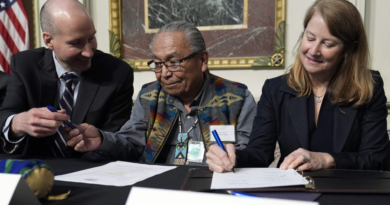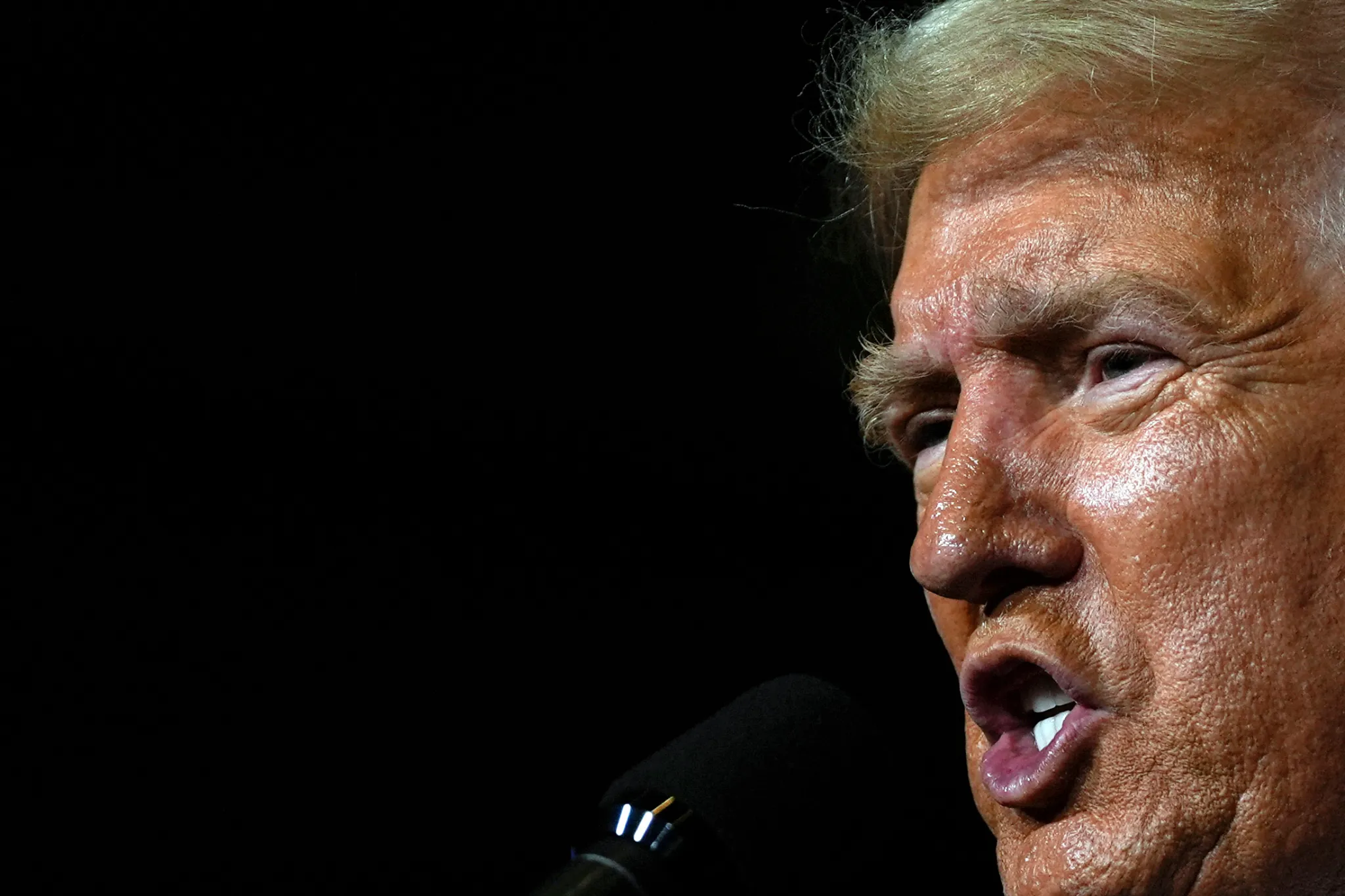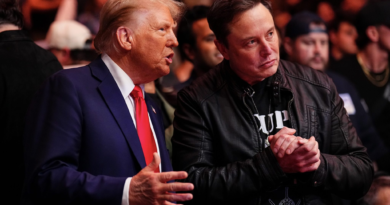Trump Media stock still faces a ‘race to the bottom’ as lockup period nears end
The paper fortune that former President Donald Trump amassed by taking a nascent media startup public is shriveling, and a race to the exits that begins as soon as Sept. 19 could shrink it even more.
Trump Media & Technology Group Corp., which owns the X-lookalike social media platform Truth Social, has shed nearly $6 billion in value over the past four months. Meanwhile, its largest shareholders have been unable to sell because of a lockup agreement from when the firm went public through a special-purpose acquisition company merger in March.
The stock was trading at its lowest level since then as recently as Thursday, erasing $4.1 billion in paper wealth for the Republican presidential candidate, who owns roughly 60% of the company. His stake is now worth about $2.1 billion.
“Buyer beware,” said Paul Karger, co-founder and managing partner at TwinFocus. “I’ve watched the fallout from many of these former SPACs, and it was just a race to the bottom where everyone was trying to get out at any price. And the stocks just collapsed.”
Trump isn’t alone in watching a paper empire collapse because of the lockup restrictions, which prevent insiders from selling until next week at the earliest. Andy Litinsky and Wes Moss, former contestants on Trump’s TV show The Apprentice who co-founded the company, and Patrick Orlando, whose fund, ARC Global Investments II LLC, sponsored the SPAC that merged with Trump Media, have seen more than $500 million in wealth wiped out.
Investors are bracing for a flurry of sales from Litinsky, Moss and Orlando given that none of them have roles at the company and all have been parties in a smattering of lawsuits surrounding their positions. Whether Trump or the other insiders will capitalize on the removal of the lockup as soon as the end of next week is unclear. But traders will be closely monitoring regulatory filings that would show any such sales.
As for the former president, he insists he has no plans to dump the shares.
“A lot of people think that I’ll sell my shares,” Trump said at an event on Friday. “You know, they’re worth billions of dollars, but I don’t want to sell my shares. I’m not going to sell my shares. I don’t need money. And it is great for me. It’s a great voice.”
The stock jumped following those comments, closing Friday up 12%.
Back To X
That said, Trump has done little to inspire investors to back his company. He returned to Elon Musk’s X on Aug. 12, posting more than 100 times in the weeks that followed. Trump Media shares plunged more than 10% on Wednesday following the former president’s disappointing debate against Democrat Kamala Harris.
The stock has tumbled to $17.97 from $40.58 on July 15, just after the assassination attempt on the presidential candidate at a rally in Pennsylvania, posting losses for seven straight weeks before recovering this week. The slide makes the company look more like the meme stock skeptics have described, with an over $3 billion valuation despite second-quarter revenues of less than $1 million.
“Trump Media never traded on the basis of its underlying economics,” said Stanford University law professor Michael Klausner.
Despite Friday’s rally, investors are preparing for the selling pressure that could come from the ending of the lock-up on Trump Media insiders. But the reality is, it’s difficult for shareholders with such large stakes to quietly unload their holdings.
“There’s not a lot of room for error here,” said Karger, who co-founded TwinFocus to advise ultra-high-net-worth individuals to manage their wealth. The Securities and Exchange Commission “will be all over this to make sure every T is crossed and I is dotted.”
This is particularly true for Trump, who holds nearly 115 million shares. If he did decide to sell, it would more than double the amount of stock that’s freely traded in the market, according to Jack Ablin, chief investment officer at Cresset Capital.
“It’s a publicly traded stock, but selling 60% of the company would require a disclosure and have to be done on a regularly scheduled program,” Ablin said in an interview. “It’s going to take a while. It’s not something he could simply hit the sell button on.”
SPAC Outlier
Trump Media’s route to the public market was an outlier even for the SPAC boom, which brought hundreds of smaller firms onto exchanges in deals with less regulatory scrutiny. Digital World Acquisition Corp., the SPAC that was founded and backed by Orlando, settled fraud charges with the SEC last year. Then, the regulator sued Orlando this summer, accusing him of misleading investors.
Those cases are separate from the series of lawsuits related to Trump, the stakes of Orlando’s ARC and Litinsky’s and Moss’s United Atlantic Ventures in the company, and the rules surrounding the restrictions of sales.
Earlier this year, Litinsky and Moss sued Trump over an attempt to dilute their stakes and pushing back from the lockup, which is common in SPAC deals. The duo were separately sued by Trump, who accused them of botching the setup for Trump Media prior to the SPAC merger and suggested that they shouldn’t get any stock in the company.
Meanwhile, Orlando has launched a suit arguing that he is entitled to nearly 2.5 million more shares than he was allotted because of a stock conversion ratio he maintains was incorrect.
Ultimately, the fate of Trump Media’s shares may be tied to the results of the November election, which at the moment appears to be neck-and-neck. Polling averages from Real Clear Politics show Harris with 48.5% support, giving her a 1.5 point lead over Trump, who’s at 47%.
“What happens to the value of the stock if Donald Trump loses his bid to be president?” Ablin said. “There’s a lot of risk with this thing. It’s really trading pretty much off of Donald Trump’s name — the ticker symbol is his initials for goodness sake.”



